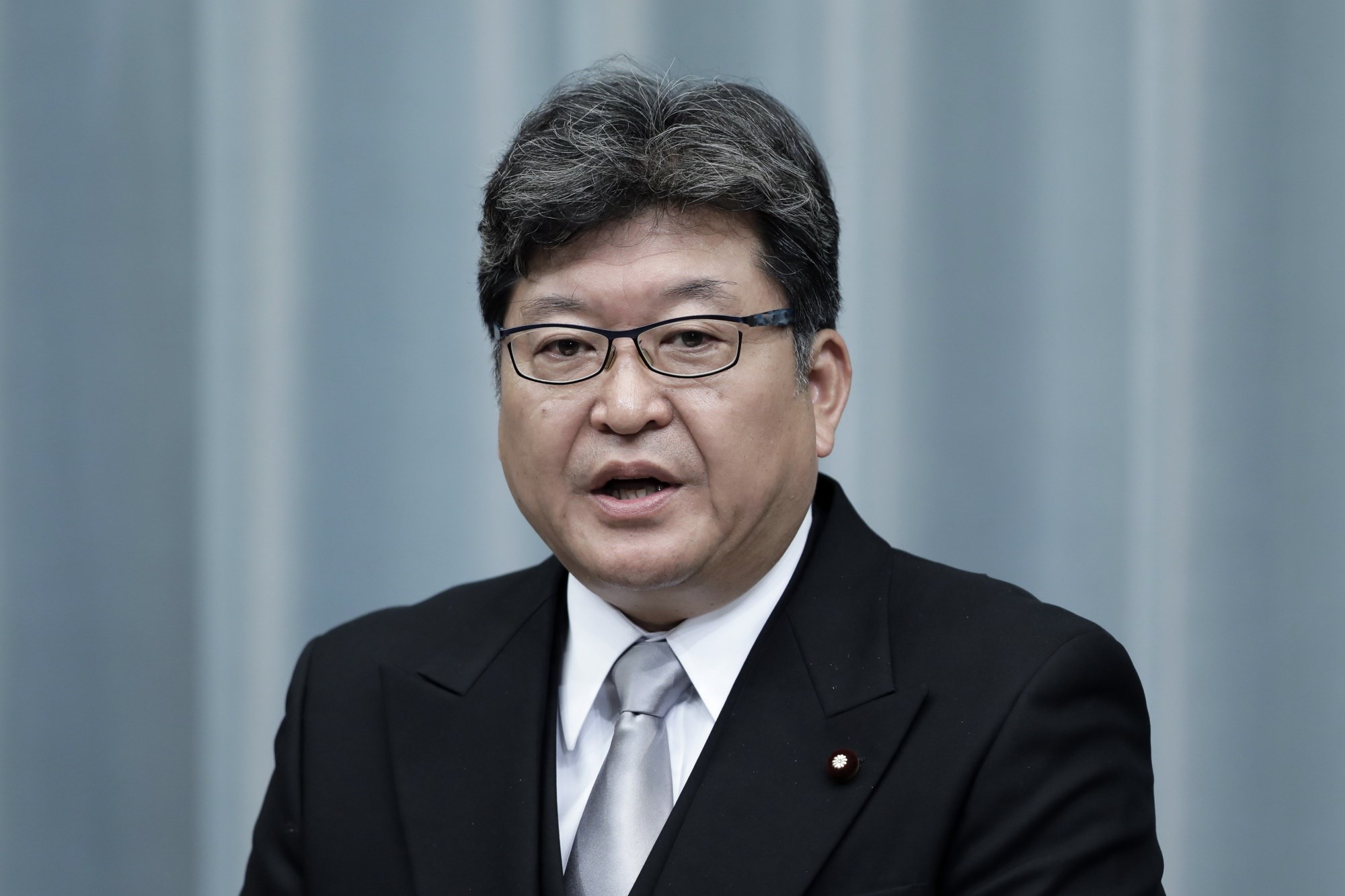Japan interested in keeping shares in Russia-led gas Sakhalin projects
This comes as the Russian President signed a decree banning unfriendly countries from maintaining shares in the Sakhalin Gas projects.
-

Japanese Economy Minister Koichi Hagiuda (Bloomberg)
Japan plans on keeping its firms’ shares in the Russia-led Sakhalin-1 oil and gas project, notwithstanding the new Russian protocol banning transactions with shares of foreigners from unfriendly countries, prompting the Japanese Minister of Economy, Trade, and Industry Koichi Hagiuda to make a statement on Monday.
What does the new decree constitute?
Upon Russian President Vladimir Putin ratifying the new decree in the economic-trade relations between Russia and foreign nations, any transactions with shares of foreign persons from countries Russia deems unfriendly in its strategic projects and companies in the fuel, energy, and mining sectors, as well as some banks are banned.
Read more: Russia expands list of 'unfriendly' countries amid Ukraine crisis
The Sakhalin-1 project was no exception, as the decree bans investors from unfriendly countries from making transactions with shares in it, alongside the Kharyaga oil field until the end of this year.
At a press conference, Economy Minister Hagiuda stated that Japan is aware of the decree and of the fact that it would be impossible to maintain shares and assets in Sakhalin-1 by the end of the year due to the conditions of the new rule.
“We are currently clarifying the details, so I would like to refrain from commenting. However, for our country, which is 90% dependent on Middle Eastern oil, Sakhalin-1 is an important source of supplies outside the Middle East. There are no changes in our position on maintaining the shares of our companies," Hagiuda further added.
The Sakhalin-2 project in the works
Having recently changed its operator with Russia's Gazprom as its majority shareholder, the Sakhalin-2 project is currently exploring two reserves in Russia, northeast of the Sakhalin shelf in the Okhotsk Sea.
The infrastructure circumference entails three offshore platforms, an integrated onshore processing facility, an oil shipping terminal, and a liquefied natural gas (LNG) plant with a capacity of 9.6 million tonnes annually. Sakhalin-2 accounts for about 9% of Japan's LNG imports.
Read more: Japanese FM pressures UAE to pump more oil to lower prices

 2 Min Read
2 Min Read











